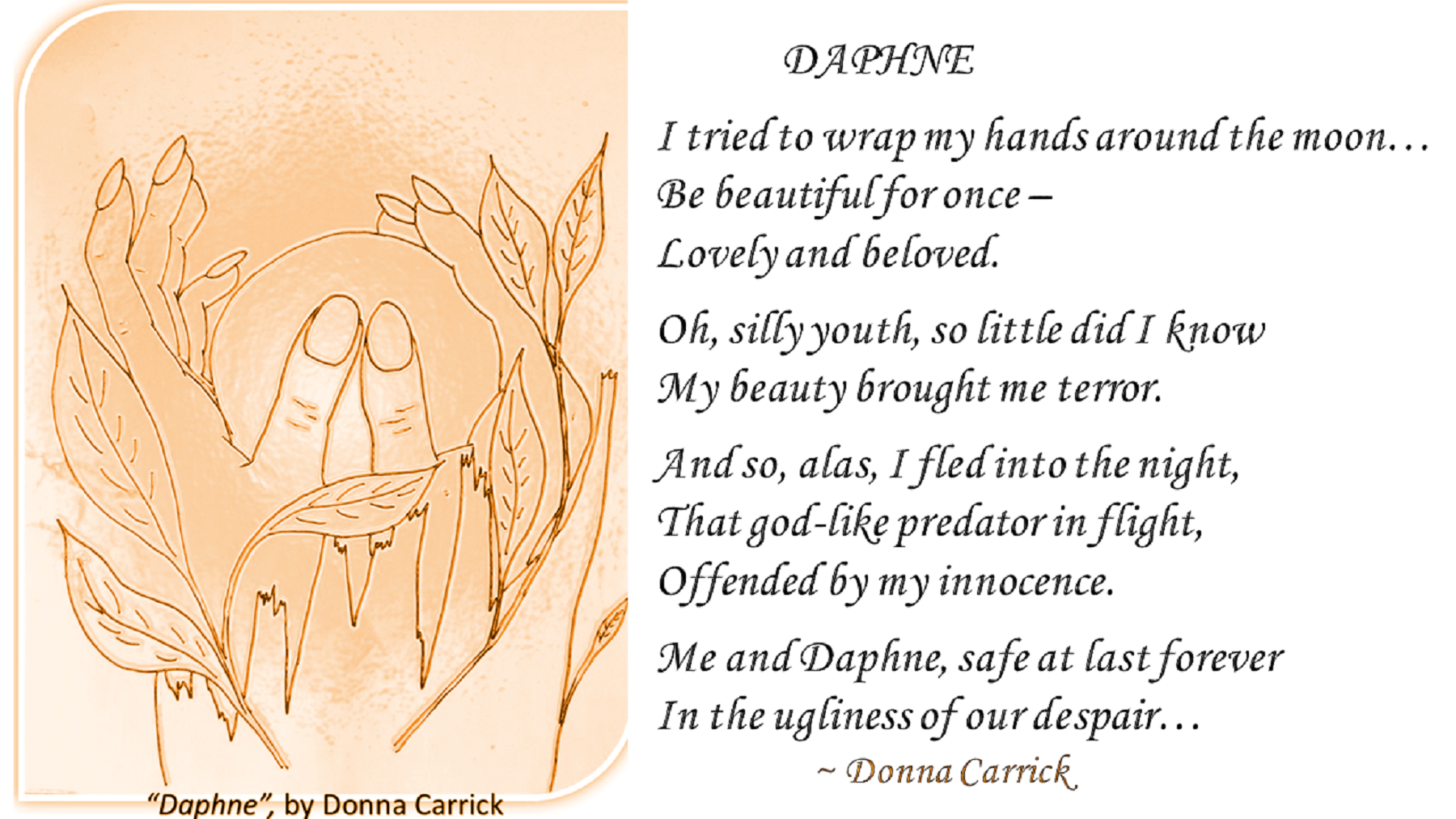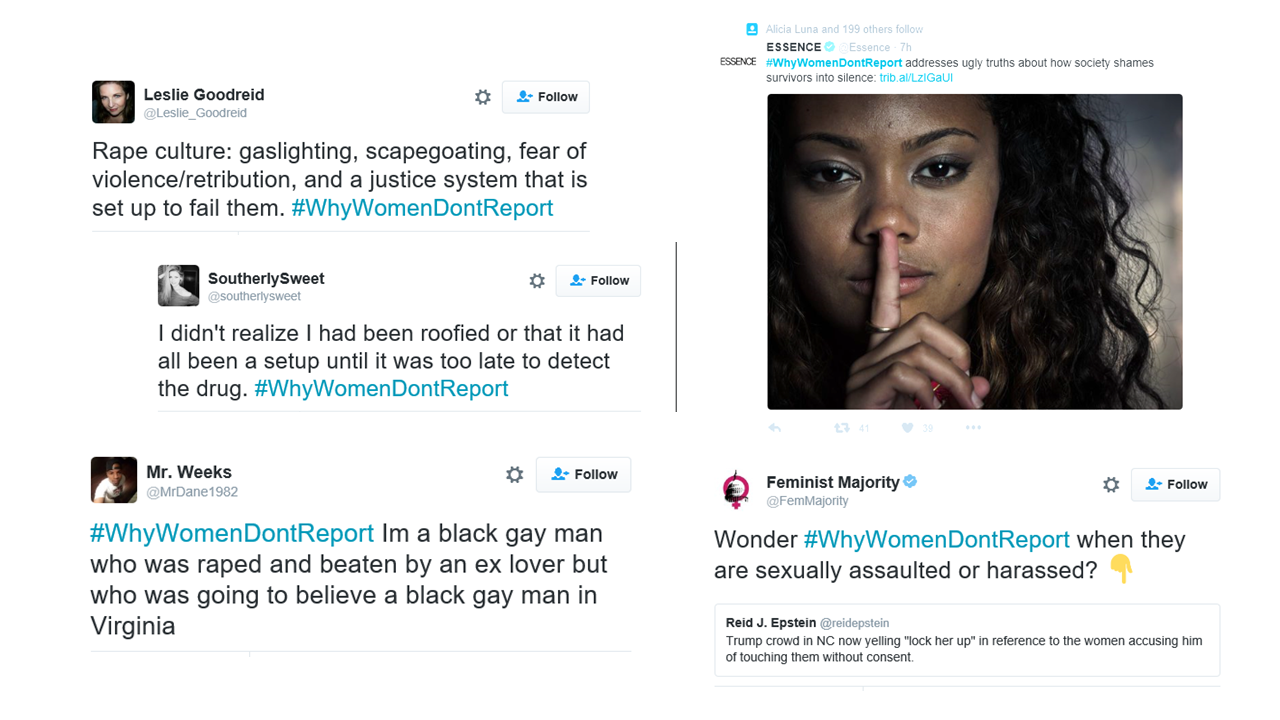 Unless you’ve been living under a rock this past week, you are aware of the Friday revelation of the Trump “Pussy-Gate” audiotape.
Unless you’ve been living under a rock this past week, you are aware of the Friday revelation of the Trump “Pussy-Gate” audiotape.
(For the record, I detest the “P” word, the “C” word and the “B” word, every bit as much as decent people hate the “N” word. These are all expressions of hatred, intended to hurt, belittle, dehumanize. But for purposes of this article, I will stick with the vernacular.)
Following the publication of that tape, Mr. Trump vehemently denied he had been boasting about actual instances of sexual assault. He maintains that his statements were nothing more than “locker room banter”, the silly crowing of a man among men, and remember, after all, no one respects women more than he does.
On the heels of his denial came a waterfall of women accusing Mr. Trump of doing exactly what he has denied doing: of kissing and touching them inappropriately and without their consent.
I cannot speak to the validity of their charges. I wasn’t there.
You see, I know first-hand (if you’ll pardon the pun) the ugliness of sexual assault. I understand the pain, the shame, the vile stench it leaves on every aspect of a victim’s life.
It is NOT something you accuse someone of lightly. For anyone who has never suffered this, or been close to a survivor, let me enlighten you: The sheer repulsiveness of the crime is so magnified to the victim that it taints the victim in everything he or she touches.
Much has been said/reported/tweeted about the timing of these allegations. “Why now?” the Trumpets wail, between appalling shouts of “Hey Trump, grab my…” (Sorry, I said it once, I cannot say it again. Just too ugly a word.)
Why after 20, 30 and even 40 years would an alleged victim choose to come forward with a story that should have been told earlier?
Why indeed?
The question raised a Twitter storm, tweets flurrying under the hashtag #WhyWomenDontReport . A few of my favourites are below:

And it got me thinking. Is it time?
I’ve been ‘out’ for years as a Survivor of childhood sexual/physical/emotional abuse.
But it wasn’t always that way. For many years I kept the trauma to myself. It wasn’t until 30 years after the assaults began that I started to seek help for my trauma, and for the impact it still had on my life.
At the age of 34 I was clinically depressed, about to end my second marriage, suicidal, sure that I would never succeed at simple happiness and certain that it was all my fault.
(Taking blame is easy for most victims. We absorb shame like sponges, making it difficult to talk about the crimes of others, because in our guts we can’t help feeling we are at fault.)
I had a son, one son at the time, my precious eldest.
Suicidal thoughts were permeating my waking moments, but I knew death was off the table. Who would care for my son? Who would explain to him that his beloved mother didn’t care enough to carry on?
So I sought medical help at last. I began weekly sessions with a psychiatrist, submitted to taking 6 month’s worth of anti-depressants, and committed to finally speaking openly about my past.
And not only the ugliness of my childhood. There was more. Predators exist not only within our families, but also in the outside world. And young girls and women, especially those who’ve been damaged by reprehensible childhoods, are easy prey.
I talked about it all. I was encouraged to confront my parents with it, but I never could do that. But at least I was finally talking about it, in all its brutal gore.
Still, it was another 15 years before I could touch on the subject publicly.
My family have always been aware — my doctor made it clear to me that silence was the enemy. Truth begets happiness and light. So I’ve never buried this past with my immediate family.
But I was more than 50 years old before I started talking — really talking — openly about these truths.
So I understand the desire for silence. I understand the feeling that no one will care, or worse, they will blame the victim. It has all been done to me, much more so than I could ever say.
I’ve lost friends, family members have turned on me, I’ve been accused of hurting my mother, of soiling the memory of the parents I loved. I’ve been dismissed as a liar, as wanting attention.
And worst of all, I’ve seen the awkward looks of the people I’ve confided in, felt the ugliness of it all from their perspective and known they would prefer if I simply shut up about it.
And here’s the real kicker: When a Survivor decides to move on, to bring joy into their own life, just to see what that is like, they are met with resistance, further punished for the crimes of others.
People look at us as if we can’t possibly be decent parents, carrying the baggage that we lug around every day.
And yet, if I had decided not to have children, that would have robbed me of the greatest joy I’ve ever known.
I refused to be punished to that degree for someone else’s crimes.
My wonderful children are everything to me, and they know how much they are loved.
So go ahead, keep asking the question #WhyWomenDontReport .
And we, women, men and children who have been victims of sexual violence and who have survived, we will keep on answering.
Your comments are welcome. Tell your story of why women don’t report in the fields below.

















